Women's Wellness
Ovarian Cysts: How to Shrink Them Naturally?
4 min read
By Apollo 24|7, Published on - 30 June 2022, Updated on - 06 August 2024
Share this article
0
0 like
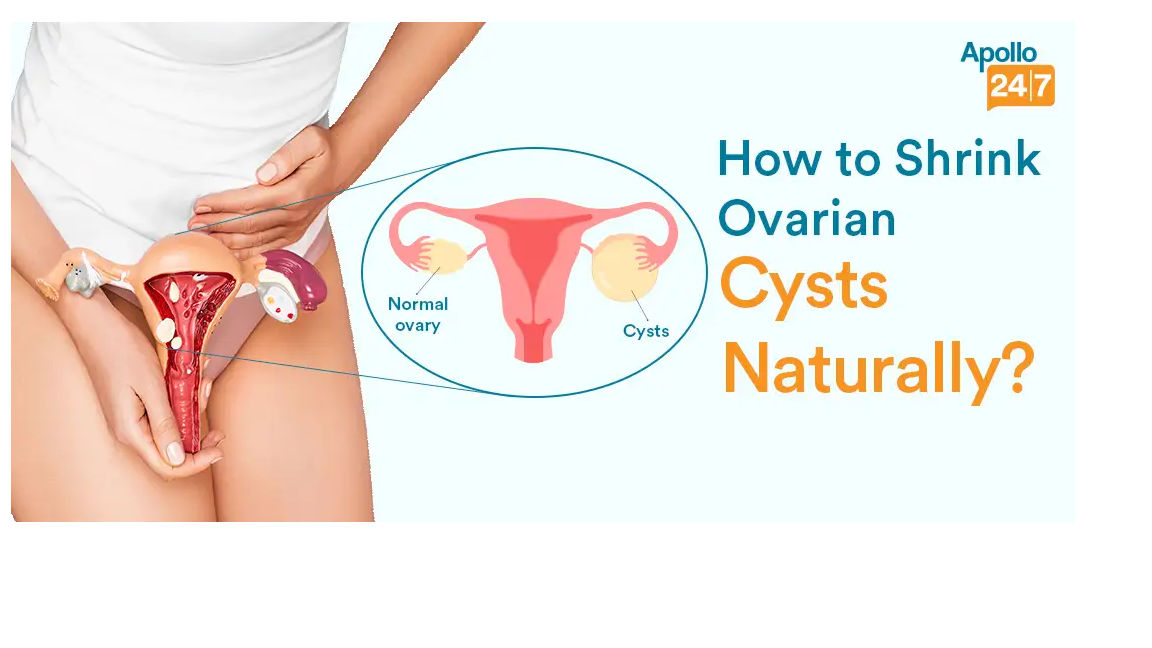
Ovarian cysts are fluid-filled cysts within or on the surface of an ovary. They are very common and most women won't know they have ovarian cysts until they have been examined by a gynaecologist post an ultrasound.
Laparoscopy or a keyhole surgery helps in removing ovarian cysts from the ovaries. However, there are some natural ways to shrink ovarian cysts that one can try at home to shrink the cysts naturally before opting for surgery.
7 best ways to shrink ovarian cysts naturally
Consume beetroot
Beetroot contains a compound known as betacyanin that boosts the liver’s ability to clear toxins out of your system. Plus, the alkaline nature of beetroot helps balance the acidity in your body. This in turn reduces the size of many cysts. For best results mix one-half cup of freshly extracted beetroot juice with one tablespoon each of aloe vera gel and blackstrap molasses. Drink this once daily before eating your breakfast.
Have ginger
Ginger is a powerful herb for naturally shrinking ovarian cysts and relieving symptoms of PCOS. In addition, a study indicates that ginger not only helped in reducing the size of the cysts but also helps to fight ovarian cancer cells. Ginger inhibits growth and modulates the secretion of angiogenic factors (the growth of new blood vessels) in ovarian cancer cells. The use of dietary agents such as ginger may have potential in the treatment and prevention of ovarian cancer.
Take flaxseeds
Flaxseeds have proven to be effective in lowering the body's androgen levels which tend to increase cysts and worsen PCOS. Flaxseeds balance the proportion of oestrogen to progesterone in your body thereby helping reduce the cysts. Besides, flaxseeds are rich in fibre and thus, help the body eliminate harmful toxins and waste products released by the liver. Drink one glass of warm water mixed with one tablespoon of ground flaxseed in a glass on an empty stomach daily.
Try apple cider vinegar
Studies indicate that apple cider vinegar can help contract and disperse ovarian cysts caused by potassium deficiency. Mix one tablespoon each of apple cider vinegar and blackstrap molasses to a glass of warm water. This drink also helps reduce excessive menstrual bleeding, bloating and cramps during periods.
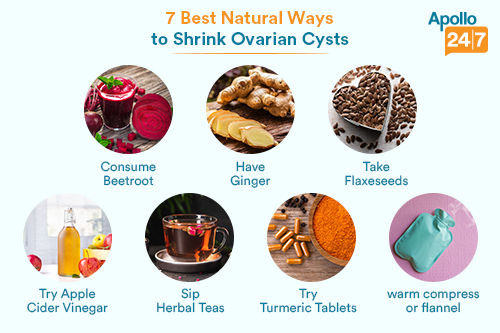
Sip Herbal teas
Herbal tea like chamomile tea and green tea is also considered a good remedy for treating ovarian cysts. Mix two teaspoons of dried chamomile and one tsp of honey in a cup of hot water. Cover and leave it for five minutes. You can drink two to three cups of chamomile tea daily until you get rid of the problem. A study in the animal model shows that green tea remarkably reduced luteinizing hormone and testosterone improving the overall PCOS condition.
Try turmeric tablet
Curcumin in turmeric is one of the best polyphenolic compounds to treat a number of ovarian diseases. The daily intake of turmeric tablets is associated with shrinkage of ovarian cysts and reducing the chances of ovarian cancer. However, consult a doctor before starting with turmeric tablets as it may sometimes interfere with certain treatments and medications.
Use hot water bottle compression
Hot water bottle compression for 10 minutes can help reduce inflammation and relieve the symptoms associated with an ovarian cyst, such as abdominal cramps and bloating.
Are there natural remedies that will help with ovarian cysts?
Dr Ramna Banerjee, a senior consultant gynaecologist & obstetrician associated with Apollo 24|7, states that “There is some evidence that shows the benefit of natural home remedies in shrinking cysts. A few of these include sipping herbal teas, taking beetroot juice mixed with aloe vera, using ginger and turmeric and flaxseeds, and consuming apple cider vinegar.”
Takeaway
Ovarian cysts are common, and most are harmless and can shrink or go away with time. However, you can try home remedies before going for a laparoscopy. Even when the cysts persist, treatment is safe and reliable and can prevent the cysts from growing or causing serious harm. Home treatments for ovarian cysts might not always make the cysts go away but may reduce the size of big cysts and can ease pain and discomfort.
Although home remedies work, however, women are recommended to be mindful, and they should report large cysts to a gynaecologist at the earliest. This is because large cysts may require surgical intervention. In addition, the worsening of symptoms while undertaking home remedies should be discussed with a doctor immediately. Delay will only lead to aggravation of the condition.
If you have more questions,
Leave Comment
Recommended for you
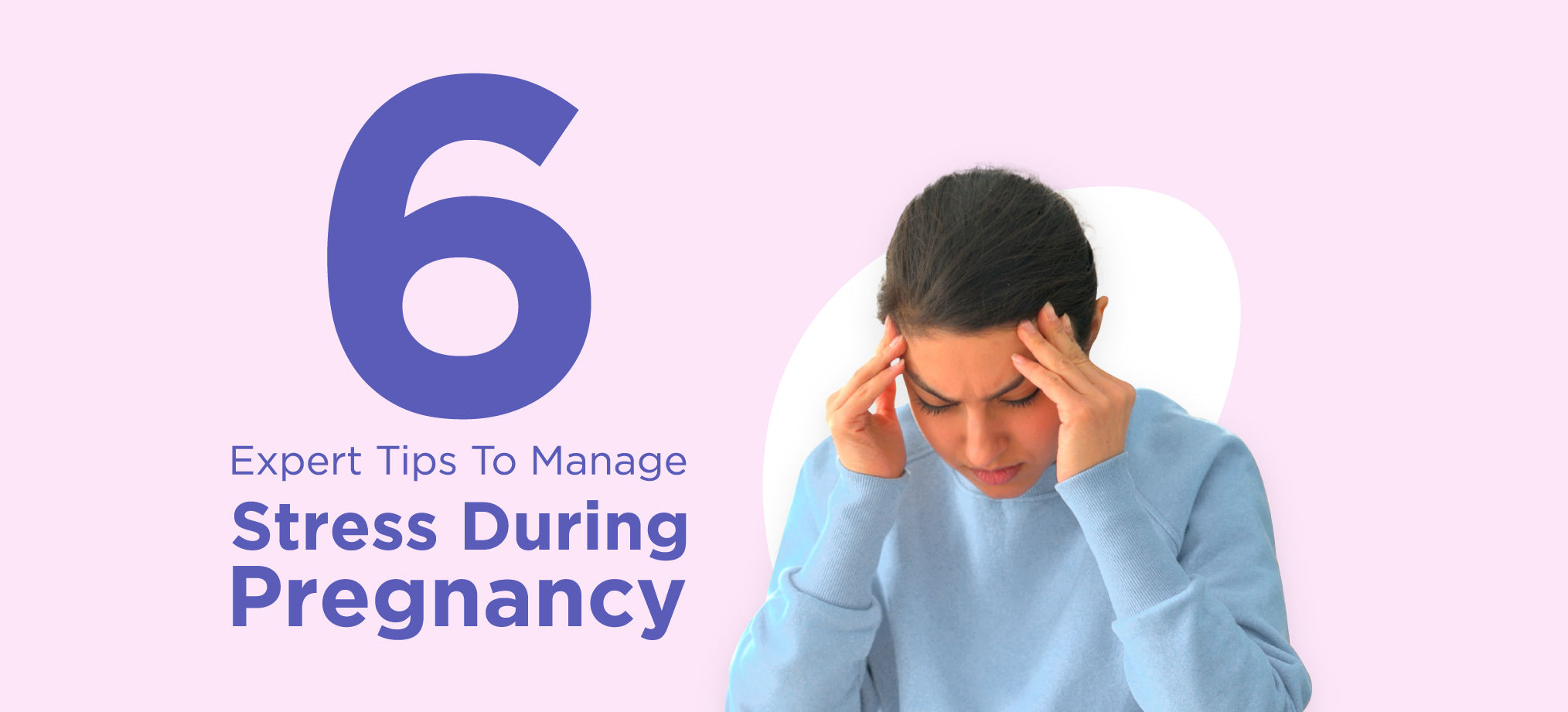
Women's Wellness
How To Manage Stress During Pregnancy?
Continually elevated stress levels during pregnancy can have an adverse impact on your health and on that of your unborn baby. It’s essential to manage your stress levels during this time of your life. Read on to learn about some simple steps you can take to keep the levels of your stress under control.
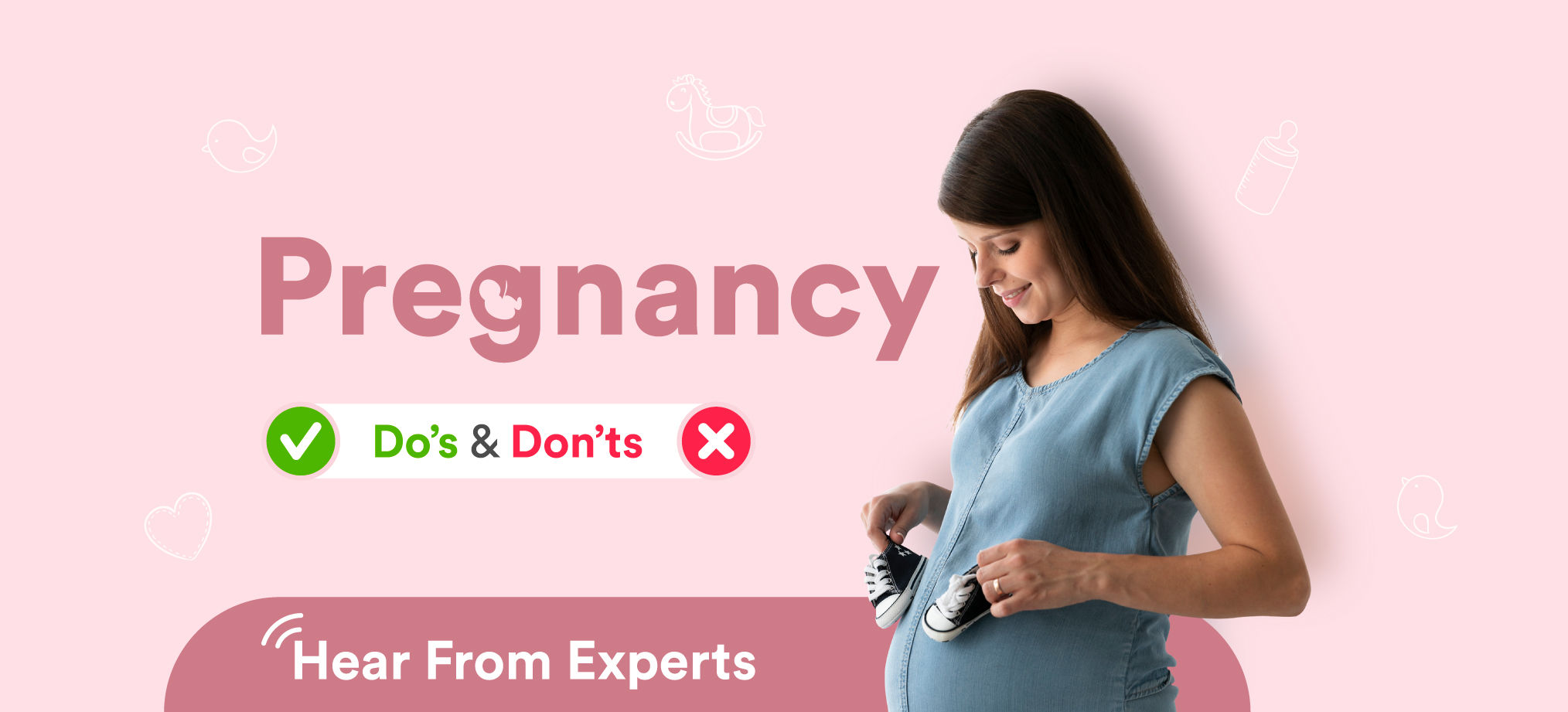
Women's Wellness
What To Do And What To Avoid During Pregnancy?
When you are pregnant, it becomes all the more important to take care of your health. Adopting healthy practices is vital to ensure the proper development of your unborn baby and improve your overall well-being. So, here is a list of some of the best practices to engage in for a healthy and safe pregnancy.
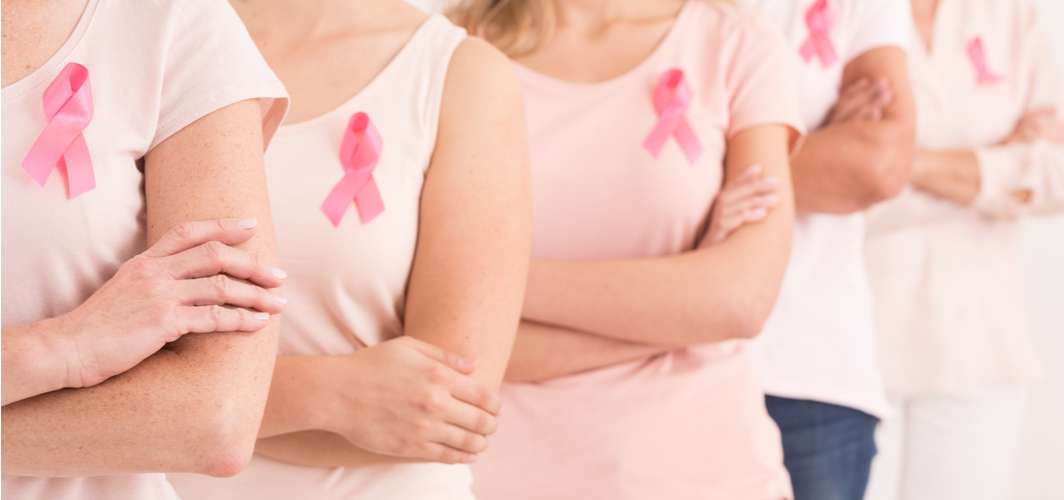
Women's Wellness
The Most Common Cancers Affecting Women
Cancer can affect anyone, irrespective of their gender and age. However, some cancers are more prevalent in women across the world.
Subscribe
Sign up for our free Health Library Daily Newsletter
Get doctor-approved health tips, news, and more.
Recommended for you

Women's Wellness
How To Manage Stress During Pregnancy?
Continually elevated stress levels during pregnancy can have an adverse impact on your health and on that of your unborn baby. It’s essential to manage your stress levels during this time of your life. Read on to learn about some simple steps you can take to keep the levels of your stress under control.

Women's Wellness
What To Do And What To Avoid During Pregnancy?
When you are pregnant, it becomes all the more important to take care of your health. Adopting healthy practices is vital to ensure the proper development of your unborn baby and improve your overall well-being. So, here is a list of some of the best practices to engage in for a healthy and safe pregnancy.

Women's Wellness
The Most Common Cancers Affecting Women
Cancer can affect anyone, irrespective of their gender and age. However, some cancers are more prevalent in women across the world.